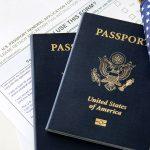After crossing several time zones, many travelers suffer from “jet lag.” Although there is no way to completely avoid jet lag, there are a number of ways to help your body adjust to a new time zone.
Try to go to bed a little earlier a few days before you leave and get as much sleep as you can during your flight.
Many side-effects of jet lag are the result of dehydration, so avoid alcohol, coffee, tea and other caffeinated beverages and drink plenty of water during your flight.
Eat lightly on your flight and forego rich or exotic foods on the first few days of your trip so that you can use your energy to adjust to your new surroundings rather than to digest your food.
Exercising on a long flight will help alleviate such common discomforts as backaches, swollen legs and feet and general fatigue. Stretch at regular intervals and walk up and down the aisles of the plane from time to time to prevent dangerous blood clots from forming.
Finally, take it easy on the day you arrive so that you can take advantage of your trip at a leisurely pace and establish a routine in sync with the local time.





















